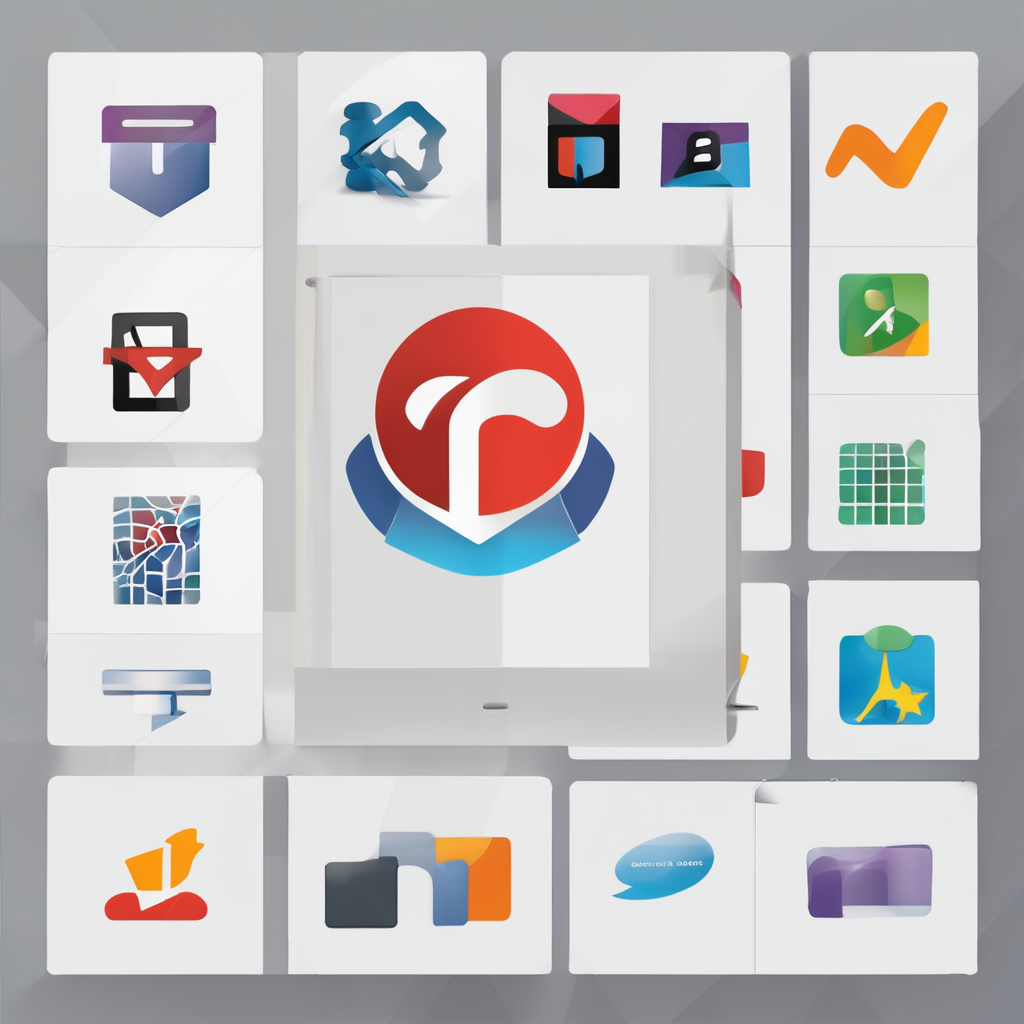Overview of Upcoming Technological Advancements
As we venture into an era of rapid change, future technologies promise to reshape the UK business landscape profoundly. Among these innovations, key technological advancements such as artificial intelligence (AI), the Internet of Things (IoT), and blockchain are paving the way for transformational change. These emerging trends are not just futuristic concepts; they are on the cusp of becoming integral components in how businesses operate.
AI stands at the forefront, driving significant improvements in business efficiency through tasks like data analysis and customer service automation. Machine learning, a subset of AI, enables systems to self-learn and predict outcomes, offering UK businesses a competitive edge in diverse sectors.
Additional reading : How Do UK Businesses Navigate Post-Brexit Challenges?
Blockchain technology is another game-changer, particularly for industries reliant on data security. It’s revolutionizing the supply chain by enhancing transparency and reducing potential fraud, ensuring that information shared between partners is tamper-proof and reliable.
Meanwhile, IoT is transforming operational practices by providing real-time insights through IoT devices that feed into comprehensive data analytics programs, optimizing every facet of business operations from inventory to consumer interaction.
Have you seen this : How Can UK Businesses Adapt to Sustainably Boost Their Growth?
The significance of these technological emerging trends extends beyond operational improvements; they drive strategic decisions, cost reductions, and new business models, exponentially increasing the potential for growth and innovation. For UK businesses, staying ahead of these trends means embracing technological advancements and understanding their potential impacts—ensuring they remain competitive and prepared for inevitable industry transformations.
Robotics and Automation
In the coming years, robotics and automation are set to revolutionize industries, significantly enhancing operational efficiency. The adoption of automation technology facilitates streamlined processes, reducing time and resource consumption across various sectors. Robotics are becoming pivotal, not only in manufacturing but also in service industries, offering consistency and precision labor cannot match.
The Rise of Robotics in Various Industries
The expansion of robotics is particularly evident in sectors such as automotive manufacturing, where the precision and speed of robots are unmatched by human labor. Similarly, in logistics, autonomous systems streamline warehouse operations, ensuring goods are handled efficiently. Meanwhile, in healthcare, robots assist with surgery, exemplifying their technical prowess and specialized capabilities.
Case Studies: Robotics in Manufacturing and Services
Consider automotive manufacturing giants, which have employed robotic assembly lines to maximize output while maintaining quality. In the service sector, robotic process automation (RPA) software streamlines customer service operations, demonstrating significant cost-effectiveness and productivity gains. Such case studies underscore the pivotal role of robotics in elevating industry standards and reducing operational bottlenecks.
Future Prospects for Robotics in the UK
Looking forward, the deployment of robotics in the UK is expected to grow, driven by demands for efficiency and technological advancement. While there are concerns about job displacement, the trend towards collaborative robots—designed to work alongside humans—suggests a transformative impact on job roles, emphasizing the need for new skills and training. Businesses are encouraged to harness these advances while considering potential barriers to adoption, including cost and the integration of robotics within existing frameworks.
Predictions on Future Developments
As we look towards the horizon, many technology trends stand poised to redefine the business landscape further in the coming decade. These predictions are guiding UK businesses in strategic planning, ensuring they can navigate the tides of change with agility and foresight.
Expert Predictions on the Next Decade of Technology
Experts predict that artificial intelligence will continue to evolve, with machine learning becoming an integral part of decision-making processes across industries. This integration is expected to boost predictive analytics, allowing companies to foresee market changes and respond proactively. Meanwhile, blockchain technology promises to expand beyond the financial sector, revolutionizing areas like real estate and digital identity verification.
The Role of Government and Policy
Government and policy play a crucial role in facilitating technological advancements. Policies aimed at supporting innovation and easing regulatory barriers will significantly influence the pace of adoption. It’s anticipated that strategic government investments in infrastructure will accelerate the rollout of technologies such as 5G, which is pivotal for enhancing operational efficiency through IoT devices.
Strategies for Businesses to Stay Ahead
To stay ahead of these developments, businesses must adopt a forward-thinking approach, investing in employee upskilling and digital transformation strategies. Embracing a culture of innovation—where experimentation and learning from failures are encouraged—will be critical. By proactively adapting to emerging trends, companies can maintain a competitive edge and ensure long-term growth amidst a rapidly evolving digital landscape.
Artificial Intelligence in Business
Artificial Intelligence (AI) and its transformative potential are at the centre of modern business strategy. Businesses are increasingly integrating AI applications to streamline processes, enhance predictive capabilities, and improve overall business efficiency.
Overview of AI in the Business Context
In the business realm, AI is not merely a buzzword; it embodies a range of technologies that mimic human decision-making and problem-solving. Key advancements include machine learning algorithms that allow systems to improve over time without explicit programming. These capabilities are invaluable in sectors like finance, where AI can rapidly analyse large datasets to offer real-time insights and predict market trends.
Case Studies: Successful AI Implementations
Numerous companies have reaped significant benefits from implementing AI. For instance, financial firms have used AI to detect fraud, reducing potential losses significantly. In retail, AI-driven recommendation engines have personalised user experiences, resulting in increased sales. These examples highlight the role of AI in enhancing business efficiency by automating complex tasks previously reliant on human oversight.
Future Trends in AI Adoption
Looking ahead, AI integration in business is poised to deepen. Opportunities include improved customer interaction through AI chatbots and robust analysis through advanced data analytics platforms. However, these advancements come with challenges. Businesses will need to address ethical considerations, such as data privacy concerns, and ensure their workforce is equipped with the skills necessary to work alongside AI technologies. As AI continues to evolve, it is set to redefine business landscapes, offering numerous avenues for innovation and growth.
Blockchain Technology and Its Applications
Blockchain technology is transforming industries through its innovative approach to enhancing data security and supply chain management. As blockchain systems ensure that transactions and stored data are tamper-proof, they are pivotal for any organization dealing with sensitive information.
Understanding Blockchain and Its Use Cases
Blockchain operates as a distributed ledger, ensuring transparent and verifiable transactions across networks. Beyond cryptocurrencies, it holds value in varied sectors. Real estate transactions, for example, benefit from its ability to securely log ownership transfers, thus reducing fraud and paperwork. Blockchain’s utility extends to healthcare, where it can store and share patient records securely.
The Role of Blockchain in Financial Services
The financial sector is particularly benefitted by blockchain’s capabilities. It facilitates faster and more secure cross-border payments, substantially reducing costs associated with traditional banking systems. By employing smart contracts, financial institutions automate processes, cutting down on time and increasing transaction efficiency.
Impacts on Supply Chain Management
In supply chain management, blockchain enhances transparency and trust among participants. Each product’s journey is recorded immutably, providing a detailed audit trail from origin to destination. This reduces the risk of counterfeit goods and helps in cost savings by minimizing delays and errors. Furthermore, as businesses strive for efficiency improvements, blockchain integrates seamlessly with IoT devices, offering real-time tracking and data sharing. However, regulatory challenges remain a hurdle, necessitating clear guidelines to ensure widespread adoption and future prospects for this emerging technology.
The Internet of Things (IoT) and Business Transformation
As future technologies advance, the Internet of Things (IoT) emerges as a pivotal force reshaping the UK business landscape. By seamlessly connecting various devices, IoT provides unprecedented opportunities for data analytics and operational efficiency. This connectivity allows businesses to harness vast amounts of information, fostering real-time insights and optimized decision-making processes.
Overview of IoT and Its Relevance to Business
IoT comprises interconnected devices that collect and exchange data, driving efficiency and innovation. For UK businesses, IoT’s relevance extends to enhancing productivity through real-time monitoring and predictive analytics, substantiating its role as a cornerstone of modern industrial strategy.
Industries Most Likely to Benefit from IoT
Certain sectors are poised to reap significant advantages from IoT integration. Manufacturers utilize IoT for smart factory initiatives, automating processes and reducing downtime. In logistics, IoT devices ensure accurate inventory management and streamline supply chains, while energy sectors benefit from smart grids optimizing resource distribution.
Challenges in IoT Adoption
Despite its potential, IoT adoption is not without hurdles. Security risks pose a major concern, necessitating robust management strategies to safeguard data integrity. Moreover, integrating IoT with existing systems can be complex, requiring comprehensive planning and collaboration across departments. Addressing these challenges is crucial for businesses to unlock IoT’s full potential and maintain their competitive edge.

